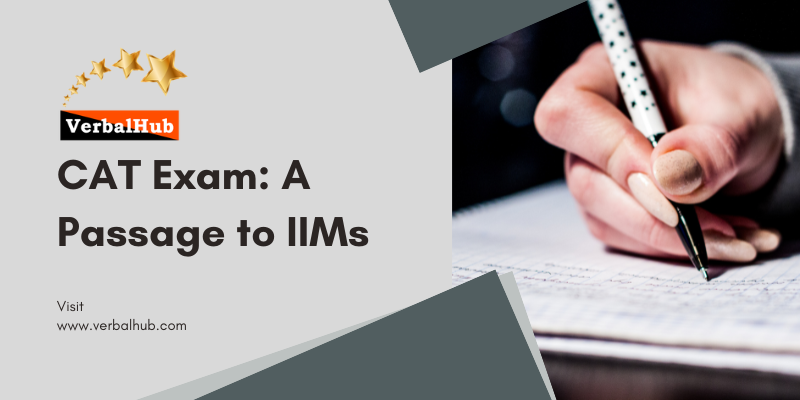

Why MBA
Why get an MBA or why do an MBA? There are numerous compelling reasons why pursue an MBA (Master of Business Administration). The benefits of doing an MBA are extensive, offering significant advantages in both the short and long term. MBA course benefits include enhanced career prospects, higher earning potential, and the development of critical leadership and management skills. One of the best reasons to get an MBA is the diverse range of opportunities. For those interested in finance, the benefits of MBA in finance are particularly notable, providing specialized knowledge and skills that are highly valued in the financial sector. Additionally, the benefits of executive MBA are orientated for professionals who want advanced careers without job break. Overall, the MBA benefits in future will lead to substantial personal and professional growth, making it a valuable investment. Reason to pursue an MBA:- ⬇ Career Advancement
- ⯀ Leadership and Managerial Proficiency: An MBA provides you with the critical skills necessary for leadership and management positions.
- ⯀ Higher Positions: Numerous top-tier positions within companies seek or favor candidates who hold an MBA.
- ⯀ Career Switch: An MBA can help you transition to a different industry or role, broadening your career opportunities.
- ⬇ Increased Earning Potential
- ⯀ Leadership and Managerial Proficiency: An MBA provides you with the critical skills necessary for leadership and management positions.
- ⯀ Bonuses and Incentives: Many companies offer attractive bonuses and incentives to MBA holders.
- ⬇ Networking Opportunities
- ⯀ Professional Network: MBA programs provide opportunities to build a network of peers, faculty, and alumni.
- ⯀ Industry Networks: Business schools typically have extensive connections with different sectors, enabling internships, project collaborations, and job placements.
- ⬇ Knowledge and Skills
- ⯀ Thorough Business Training: An MBA program encompasses diverse subjects. For example, strategic management, marketing, human resources, finance, and operations.
- ⯀ Problem-Solving and Critical Thinking: MBA programs emphasize analytical thinking and problem-solving skills.
- ⬇ Entrepreneurial Skills
- ⯀ Entrepreneurship: An MBA bestows high-tech ideas as well as skills necessary to launch and manage your own business.
- ⯀ Innovation and Creativity: Many MBA programs encourage innovative thinking and creativity, which are essential for entrepreneurship.
- ⬇ Global Perspective
- ⯀ International Exposure: Many MBA programs offer international study opportunities and attract a diverse cohort of students.
- ⯀ Understanding Global Markets: An MBA helps in understanding the dynamics of global markets and international business practices.
- ⬇ Personal Growth
- ⯀ Confidence and Leadership: The challenges and experiences in an MBA program can help build confidence and enhance leadership qualities.
- ⯀ Effective Time Management and Discipline: Successfully juggling coursework, projects, and other activities necessitates strong time management skills and discipline.
- ⬇ Access to Resources
- ⯀ Career Services: Business schools offer dedicated career services to help students with job placements, internships, and career planning.
- ⯀ Guidance Initiatives: Numerous MBA programs offer mentorship opportunities with seasoned professionals and alumni.
- ⬇ Credibility and Recognition
- ⯀ Prestigious Credential: An MBA is a well-recognized and respected qualification that can add significant value to your resume.
- ⯀ Enhanced Credibility: Holding an MBA upbrings reputation and credibility in the business world.
- ⬇ Adaptability
- ⯀ Adapting to a Dynamic Business Landscape: An MBA equips you with the skills needed to navigate the constantly evolving business world, ensuring you remain relevant and competitive in your career.
- ⯀ Lifelong Learning: The knowledge and skills gained from an MBA program encourage lifelong learning and continuous professional development.
Benefits of MBA Degree
Pursuing MBA degree (Master of Business Administration) appears with several benefits. MBA degree advantages include improved leadership and management skills, a broader job market, and higher earning potential. One of the key reasons to do an MBA is the professional network building with large number of valuable opportunities and support throughout your career. The benefits of doing an MBA extend into the future, ensuring you remain competitive and relevant in the ever-evolving business landscape. Overall, the MBA course benefits make it a strategic investment for long-term career success. Pursuing an MBA degree offers numerous benefits, which can be broadly categorized into career, personal, and educational advantages. master of business administration benefits. Here are some key benefits:- 〓 Career Benefits
- ⮞ Leadership Roles: An MBA prepares you for leadership and managerial roles, making you a strong candidate for promotions.
- ⮞ Career Transition: An MBA offers the essential knowledge and credentials required to move into new industries or roles.
⬇ Higher Earning Potential
- ⮞ Higher Earnings: MBA graduates generally receive higher salaries compared to individuals holding only an undergraduate degree.
- ⮞ Bonuses and Incentives: Companies often offer additional financial incentives to MBA holders.
⬇ Better Job Opportunities
- E⮞ xpanded Job Opportunities: Earning an MBA broadens your access to diverse career prospects across multiple industries.
- ⮞ Unique Benefit: Enhances your marketability, making you more attractive to potential employers.
⬇ Networking Opportunities
- ⮞ Extensive Network: Develop a strong network of peers, professors, and alumni.
- ⮞ Industry Connections: Gain access to industry leaders and potential employers through networking events, internships, and projects.
- 〓 Personal Benefits
- ⮞ Leadership and Management: Cultivate essential skills in leadership and management.
- ⮞ Effective Interaction: Enhance your skills in communication, negotiation, and interpersonal relations.
⬇ Increased Confidence
- ⮞ Decision-Making: Gain confidence in your ability to make strategic decisions.
- ⮞ Problem-Solving: Develop a structured approach to problem-solving and analytical thinking.
⬇ Personal Growth
- ⮞ Self-Discipline: Balancing coursework, projects, and other activities fosters discipline and time management skills.
- ⮞ Continuous Growth: Fosters a mindset geared towards ongoing learning and personal development.
- 〓 Educational Benefits
- ⮞ Key Competencies: Acquire in-depth knowledge of essential business disciplines like finance, marketing, operations, and strategy.
- ⮞ Specializations: Opportunity to specialize in areas like finance, entrepreneurship, international business, or technology management.
⬇ Practical Experience
- ⮞ Practical Experience: Obtain real-world skills with the help of case studies, consulting project and internships.
- ⮞ Practical Applications: Master the ability to apply theoretical knowledge in developing practical business solutions.
⬇ Global Perspective
- ⮞ Global Experience: Numerous MBA programs provide chances to study overseas or engage in international projects.
- ⮞ Varied Peer Group: Engage with a multicultural cohort of students from various professional and cultural backgrounds.
- 〓 Long-Term Benefits
- ⮞ Adaptability: Equip yourself with the skills needed to adapt to changing business environments.
- ⮞ Future-Proofing: Maintain career relevance by consistently refreshing your skills and expanding your knowledge.
⬇ Entrepreneurial Opportunities
- ⮞ Starting a Business: Gain the knowledge and skills needed to launch and run your own business.
- ⮞ Innovation and Creativity: Encourages innovative thinking and entrepreneurial mindset.
⬇ Credibility and Recognition
- ⮞ Prestigious Qualification: An MBA is a widely esteemed and acknowledged credential.
- ⮞ Professional Credibility: Enhance your credibility and reputation in the business world.
Note: Overall, an MBA degree can significantly impact your career trajectory, personal development, and professional growth, providing a solid foundation for long-term success in the business world.
Reasons to Do an MBA
Pursuing an MBA degree offers numerous benefits and compelling reasons for consideration. It equips individuals with advanced business acumen, strategic thinking, and leadership skills, making them highly competitive in the job market. The degree opens doors to diverse career opportunities and higher earning potential. Additionally, an MBA provides a robust professional network, access to industry leaders, and the ability to start or grow a business. The comprehensive curriculum, covering finance, marketing, operations, and management, ensures that graduates are well-rounded and capable of tackling complex business challenges. Overall, the advantages of an MBA course extend far beyond the classroom, offering lifelong personal and professional growth. Reason why choose MBA:- 〓 Career Advancement
⮚Increased Job Opportunities: Many employers prefer or require candidates for senior positions to have an MBA, expanding your job prospects.
⮚ Industry Change: For those seeking a career change, an MBA can equip you with the essential expertise and qualifications to smoothly transition into a new industry.
- 〓 Financial Benefits
⮚ Better Compensation Packages: Along with higher salaries, MBA holders often receive better bonuses, benefits, and other compensation incentives.
- 〓 Personal Development
⮚ Increased Confidence: Gain the confidence to take on challenging roles and responsibilities through the knowledge and skills acquired during the MBA program.
⮚ Self-Discipline and Time Management: Balancing the demands of an MBA program helps improve time management and self-discipline.
- 〓 Networking Opportunities
⮚ Mentorship and Guidance: Gain access to mentors and advisors who offer valuable career guidance and support.
- 〓 Entrepreneurial Aspirations
⮚ Innovation and Creativity: Learn to think creatively and innovatively, which is essential for entrepreneurship.
- 〓 Global Perspective
⮚ Understanding Global Markets: Develop an understanding of global markets and international business dynamics, which is crucial in today's interconnected world.
- 〓 Educational Growth
⮚ Specialization Options: Numerous MBA programs provide specializations or concentrations, enabling you to concentrate on specific areas of interest like finance, entrepreneurship, technology management, or international business.
- 〓 Long-Term Benefits
⮚ Future-Proofing: Stay relevant in your career by continuously updating your skills and knowledge through an MBA program.
⮚ Professional Credibility: An MBA is a respected and recognized qualification that enhances your credibility and reputation in the business world.
- 〓 Personal Satisfaction
⮚ Intellectual Challenge: An MBA program offers intellectual stimulation and the opportunity to tackle complex business problems.
Note: By pursuing an MBA, you can achieve personal growth, professional development, and a competitive edge in the job market, ultimately leading to a more successful and fulfilling career.
Benefit of Executive MBA
Pursuing an Executive MBA offers a multitude of benefits, making it a strategic investment for future career advancement. The benefits of an Executive MBA include enhanced leadership skills, expanded professional networks, and increased earning potential. In the future, an MBA can open doors to higher-level management positions and provide a competitive edge in the job market. The benefits of doing an MBA extend beyond immediate career prospects; they encompass personal growth, improved strategic thinking, and a deeper understanding of business operations. An MBA program enhances individuals' capabilities by providing them with crucial skills in finance, marketing, and management. The reasons to do an MBA are diverse, ranging from career advancement to the desire to start one’s own business. Among the best reasons to get an MBA are the opportunities for professional development, access to a robust alumni network, and the potential for significant salary increases. An Executive MBA (EMBA) program provides a multitude of advantages for professionals aiming to advance their careers. Some benefits of executive MBA:- ⬅ Career Advancement
- ⬥ Leadership Skills: EMBA programs emphasize the cultivation of advanced leadership and management skills, equipping professionals for senior-level positions.
- ⬥ Career Switching: Facilitates transitions into new industries or functional areas.
- Networking Opportunities: Connecting with a network of peers, alumni, and industry leaders can create pathways to new opportunities.
- ⬅ Enhanced Knowledge and Skills
- ⬥ Strategic Thinking: Courses emphasize strategic decision-making and problem-solving.
- ⬥ Global Perspective: Many programs offer international exposure, helping professionals understand global business dynamics.
- ⬥ Specialized Knowledge: Electives and specializations enable thorough exploration of particular areas of interest.
- ⬅ Increased Earning Potential
- ⬥ Higher Salaries: Many EMBA graduates experience substantial salary hikes after completing their degrees.
- ⬥ Bonuses and Promotions: Enhanced credentials can lead to better bonuses and faster promotions.
- ⬅ Flexibility
- ⬥ Work-Life Balance: These programs cater to working professionals by providing flexible schedules, weekend classes, and online learning options.
- ⬥ Immediate Application: Skills and knowledge gained can be applied directly to current job roles, benefiting both the individual and their organization.
- ⬅ Enhanced Reputation and Credibility
- ⬥ Credentials: Earning an EMBA from a well-regarded institution boosts professional credibility.
- ⬥ Employer Sponsorship: Many companies sponsor EMBA candidates, recognizing the value they bring back to the organization.
- ⬅ Personal Growth
- ⬥ Confidence: Enhanced skills and knowledge boost professional confidence.
- ⬥ Self-Awareness: Programs often include personal development components, improving self-awareness and interpersonal skills.
- ⬅ Adaptability and Flexibility
- ⬥ Adaptive Curriculum: MBA programs frequently revise their curriculum to incorporate the latest trends and advancements in the finance industry, guaranteeing that graduates are equipped to face future challenges.
- ⬥ Interdisciplinary Skills: Develop skills in other areas of business, such as marketing, operations, and strategy, making you a versatile professional.
- ⬅ Personal Development
- ⬥ Leadership Skills: Programs often include leadership training and development, helping you become an effective leader.
- ⬥ Soft Skills: Enhance communication, negotiation, and interpersonal abilities to upgrade career.
- ⬅ Credential and Recognition
- ⬥ Prestige: Earning an MBA in Finance from a respected institution can greatly boost your professional credibility and reputation.
- ⬥ Certification Preparation: Equip yourself for certifications like CFA or CPA.
- ⬅ Entrepreneurial Skills
- ⬥ Business Acumen: Provides individuals with the essential knowledge and skills needed to initiate and oversee a successful business venture.
- ⬥ Creativity and Innovation: Fosters the ability to create innovative ideas.
- ⬅ Access to Resources:
- ⬥ Alumni Network: Lifelong access to a powerful alumni network.
- ⬥ Career Services: Ongoing career support and resources from the institution.
Top Global Colleges of Executive MBA programs with detailed fees, salary, and application processes:
- ⭘ The Wharton School, University of Pennsylvania - USA
⬩ Fees: Approximately $210,900
⬩ Average Salary: $238,000 per annum (post-graduation)
⬩ Application Deadlines: Typically in December and February
- ⭘ INSEAD - France/Singapore/Abu Dhabi
⬩ Fees: Approximately €125,000 - €135,000
⬩ Average Salary: $219,000 per annum (post-graduation)
⬩ Application Deadlines: Various rounds, usually from February to June
- ⭘ London Business School (LBS) - UK
Fees: Approximately £114,000
Average Salary: $194,000 per annum (post-graduation)
Application Deadlines: Typically in March, May, and June
- ⭘ Harvard Business School - USA
⬩ Fees: Varies, around $84,000 for shorter programs
⬩ Average Salary: $212,000 per annum (post-graduation)
⬩ Application Deadlines: Various deadlines throughout the year for different programs
- ⭘ Columbia Business School - USA
⬩ Fees: Approximately $219,720
⬩ Average Salary: $214,000 per annum (post-graduation)
⬩ Application Deadlines: Typically in January and March
- ⭘ IE Business School - Spain
⬩ Fees: Approximately €72,000
⬩ Average Salary: $180,000 per annum (post-graduation)
⬩ Application Deadlines: Various rounds, usually from October to May
- ⭘ University of Chicago Booth School of Business - USA
⬩ Fees: Approximately $194,000
⬩ Average Salary: $218,000 per annum (post-graduation)
⬩ Application Deadlines: Typically in March and June
- ⭘ HEC Paris - France
⬩ Fees: Approximately €89,000
⬩ Average Salary: $188,000 per annum (post-graduation)
⬩ Application Deadlines: Various rounds, usually from March to October
- ⭘ Northwestern University Kellogg School of Management - USA
⬩ Fees: Approximately $220,000
⬩ Average Salary: $211,000 per annum (post-graduation)
⬩ Application Deadlines: Typically in April and June
- ⭘ MIT Sloan School of Management - USA
⬩ Fees: Approximately $197,000
⬩ Average Salary: $219,000 per annum (post-graduation)
⬩ Application Deadlines: Typically in February and May
Top Indian colleges for Executive MBA programs with detailed fees, salary and application processes:
- ⭘ Indian School of Business (ISB) - Hyderabad/Mohali
⬩ Fees: Approximately INR 39 Lakhs
⬩ Average Salary: INR 34-36 Lakhs per annum (post-graduation)
⬩ Application Deadlines: Typically in November and March
- ⭘ Indian Institute of Management (IIM) - Ahmedabad
⬩ Fees: Approximately INR 30-31 Lakhs
⬩ Average Salary: INR 30-32 Lakhs per annum (post-graduation)
⬩ Application Deadlines: Usually in September and October
- ⭘ Indian Institute of Management (IIM) - Bangalore
⬩ Fees: Approximately INR 28-30 Lakhs
⬩ Average Salary: INR 27-29 Lakhs per annum (post-graduation)
⬩ Application Deadlines: Typically, in August and September
- ⭘ Indian Institute of Management (IIM) - Calcutta
⬩ Fees: Approximately INR 27-28 Lakhs
⬩ Average Salary: INR 26-28 Lakhs per annum (post-graduation)
⬩ Application Deadlines: Usually in October and November
- ⭘ XLRI - Xavier School of Management, Jamshedpur
⬩ Fees: Approximately INR 20-22 Lakhs
⬩ Average Salary: INR 20-22 Lakhs per annum (post-graduation)
⬩ Application Deadlines: Typically in December and January
- ⭘ SP Jain Institute of Management and Research (SPJIMR) - Mumbai
⬩ Fees: Approximately INR 18-20 Lakhs
⬩ Average Salary: INR 18-20 Lakhs per annum (post-graduation)
⬩ Application Deadlines: Usually in October and January
- ⭘ Great Lakes Institute of Management - Chennai/Gurgaon
⬩ Fees: Approximately INR 15-17 Lakhs
⬩ Average Salary: INR 16-18 Lakhs per annum (post-graduation)
⬩ Application Deadlines: Typically in December and January
- ⭘ Narsee Monjee Institute of Management Studies (NMIMS) - Mumbai
⬩ Fees: Approximately INR 12-14 Lakhs
⬩ Average Salary: INR 14-16 Lakhs per annum (post-graduation)
⬩ Application Deadlines: Usually in November and December
- ⭘ IMT Ghaziabad
⬩ Fees: Approximately INR 12-13 Lakhs
⬩ Average Salary: INR 14-16 Lakhs per annum (post-graduation)
⬩ Application Deadlines: Typically in September and October
- ⭘ Management Development Institute (MDI) - Gurgaon
⬩ Fees: Approximately INR 18-20 Lakhs
⬩ Average Salary: INR 18-20 Lakhs per annum (post-graduation)
⬩ Application Deadlines: Usually in November and December
Benefits of MBA in Finance
The benefits of an MBA in Finance are extensive, offering some of the best reasons to get an MBA. One of the primary benefits of an MBA degree is the specialized knowledge and skills it provides, enhancing career prospects in finance and beyond. The advantages of an MBA degree include higher earning potential, increased job opportunities, and a robust professional network. Pursuing a Master of Business Administration also imparts strategic thinking and leadership capabilities for challenging business landscape. Overall, the benefits of a Master of Business Administration extend far beyond academics, Laying a robust groundwork for sustained career advancement and achievement. Pursuing an MBA in Finance in 2025 offers several benefits, including enhanced career opportunities, specialized skills, and a robust professional network. Benefits of MBA in Finance are:- 〓 Career Advancement and Opportunities
- ⬝ Increased Earning Power: MBA in Finance graduates frequently secure higher salaries compared to their peers with only undergraduate degrees.
- ⬝ Leadership Roles: An MBA in Finance prepares you for leadership and managerial roles in finance and related industries, including roles such as financial manager, CFO, investment banker, and portfolio manager.
- ⬝ Job Security: Finance is a critical function in all industries, ensuring steady demand for finance professionals.
- 〓 Specialized Knowledge and Skills
- ⬝ Advanced Financial Knowledge: Gain in-depth knowledge in areas such as corporate finance, investment analysis, financial planning, risk management, and financial markets.
- ⬝ Analytical Proficiency: Cultivate robust analytical and problem-solving abilities vital for financial decision-making and strategic planning.
- ⬝ Technical Proficiency: Learn to use advanced financial software and tools, and gain proficiency in financial modeling, forecasting, and data analysis.
- 〓 Networking Opportunities
- ⬝ Alumni Network: Gain access to a worldwide network of alumni, providing invaluable resources for career opportunities, mentorship, and professional development.
- ⬝ Industry Connections: Forge connections with professors, industry professionals, and peers, paving the way for job opportunities and collaborative ventures.
- 〓 Entrepreneurial Opportunities
- ⬝ Business Acumen: An MBA provides a solid foundation in business management, which is beneficial for starting and managing your own business.
- ⬝ Access to Capital: Networking opportunities can help in securing funding and investment for entrepreneurial ventures.
- 〓 Global Opportunities
- ⬝ International Exposure: Many MBA programs offer global immersion programs, internships, and exchange programs, providing exposure to international markets and practices.
- ⬝ Versatility: The expertise and insights acquired through an MBA in Finance are applicable across various industries worldwide.
Top MBA Colleges in Finance
Benefits of MBA degree or benefits of MBA in finance from top MBA colleges in finance come through multiple ways. As it helps gaining depth investment strategies, risk management and financial markets. The benefits of MBA in Finance include enhanced career prospects, higher earning potential, and the development of a strong professional network. Additionally, the benefits of MBA degree extend beyond specialized knowledge, providing critical leadership, strategic thinking, and analytical skills that are highly valued across various industries. Top 25 colleges for an MBA in Finance, along with information on fees, average salary, and application process:United States
- ⬅ Wharton School, University of Pennsylvania
⬥ Average Salary: $150,000
⬥ Application Process: GMAT/GRE, Essays, Recommendations, Interview
- ⬅ Harvard Business School
⬥ Average Salary: $148,750
⬥ Application Process: GMAT/GRE, Essays, Recommendations, Interview
- ⬅ Stanford Graduate School of Business
⬥ Average Salary: $154,000
⬥ Application Process: GMAT/GRE, Essays, Recommendations, Interview
- ⬅ Chicago Booth School of Business, University of Chicago
⬥ Average Salary: $145,000
⬥ Application Process: GMAT/GRE, Essays, Recommendations, Interview
- ⬅ Sloan School of Management, MIT
⬥ Average Salary: $140,000
⬥ Application Process: GMAT/GRE, Essays, Recommendations, Interview
- ⬅ Columbia Business School
⬥ Average Salary: $150,000
⬥ Application Process: GMAT/GRE, Essays, Recommendations, Interview
- ⬅ NYU Stern School of Business
⬥ Average Salary: $140,000
⬥ Application Process: GMAT/GRE, Essays, Recommendations, Interview
- ⬅ Kellogg School of Management, Northwestern University
⬥ Average Salary: $142,000
⬥ Application Process: GMAT/GRE, Essays, Recommendations, Interview
- ⬅ Tuck School of Business, Dartmouth College
⬥ Average Salary: $140,000
⬥ Application Process: GMAT/GRE, Essays, Recommendations, Interview
- ⬅ Ross School of Business, University of Michigan
⬥ Average Salary: $135,000
⬥ Application Process: GMAT/GRE, Essays, Recommendations, Interview
Europe
- ⬅ London Business School
⬥ Average Salary: $138,000
⬥ Application Process: GMAT/GRE, Essays, Recommendations, Interview
- ⬅ INSEAD
⬥ Average Salary: $130,000
⬥ Application Process: GMAT/GRE, Essays, Recommendations, Interview
- ⬅ HEC Paris
⬥ Average Salary: $125,000
⬥ Application Process: GMAT/GRE, Essays, Recommendations, Interview
- ⬅ IE Business School
⬥ Average Salary: $120,000
⬥ Application Process: GMAT/GRE, Essays, Recommendations, Interview
- ⬅ Said Business School, University of Oxford
⬥ Average Salary: $125,000
⬥ Application Process: GMAT/GRE, Essays, Recommendations, Interview
- ⬅ Judge Business School, University of Cambridge
⬥ Average Salary: $120,000
⬥ Application Process: GMAT/GRE, Essays, Recommendations, Interview
Asia
- ⬅ INSEAD (Asia Campus)
⬥ Average Salary: $130,000
⬥ Application Process: GMAT/GRE, Essays, Recommendations, Interview
- ⬅ China Europe International Business School (CEIBS)
⬥ Average Salary: $123,000
⬥ Application Process: GMAT/GRE, Essays, Recommendations, Interview
- ⬅ Indian School of Business (ISB)
⬥ Average Salary: $120,000
⬥ Application Process: GMAT/GRE, Essays, Recommendations, Interview
- ⬅ Hong Kong University of Science and Technology (HKUST) Business School
⬥ Average Salary: $125,000
⬥ Application Process: GMAT/GRE, Essays, Recommendations, Interview
- ⬅ National University of Singapore (NUS) Business School
⬥ Average Salary: $120,000
⬥ Application Process: GMAT/GRE, Essays, Recommendations, Interview
Australia
- ⬅ Melbourne Business School, University of Melbourne
⬥ Average Salary: $120,000
⬥ Application Process: GMAT/GRE, Essays, Recommendations, Interview
- ⬅ Australian Graduate School of Management (AGSM), University of New South Wales
⬥ Average Salary: $115,000
⬥ Application Process: GMAT/GRE, Essays, Recommendations, Interview
Canada
- ⬅ Rotman School of Management, University of Toronto
⬥ Average Salary: $110,000
⬥ Application Process: GMAT/GRE, Essays, Recommendations, Interview
- ⬅ Ivey Business School, Western University
⬥ Average Salary: $115,000
⬥ Application Process: GMAT/GRE, Essays, Recommendations, Interview
Note: These colleges are recognized for their excellence in finance education, offering students the necessary skills, knowledge, and industry connections to succeed in the field.
Indian Schools MBA in Finance
Top MBA colleges in Finance in India, along with information on fees, average salary, and the application process:- ⬅ Indian Institute of Management (IIM) Ahmedabad
⬥ Average Salary: INR 25-30 lakhs per annum
⬥ Application Process: CAT score, Academic Performance, Work Experience, Written Ability Test (WAT), and Personal Interview (PI)
- ⬅ Indian Institute of Management (IIM) Bangalore
Average Salary: INR 24-28 lakhs per annum
⬥ Application Process: CAT score, Academic Performance, Work Experience, Written Ability Test (WAT), and Personal Interview (PI)
- ⬅ Indian Institute of Management (IIM) Calcutta
Average Salary: INR 25-28 lakhs per annum
Application Process: CAT score, Academic Performance, Work Experience, Written Ability Test (WAT), and Personal Interview (PI)
- ⬅ Indian School of Business (ISB), Hyderabad
⬥ Average Salary: INR 27-30 lakhs per annum
⬥ Application Process: GMAT/GRE score, Essays, Recommendations, and Interview
- ⬅ Indian Institute of Management (IIM) Lucknow
⬥ Average Salary: INR 23-25 lakhs per annum
⬥ Application Process: CAT score, Academic Performance, Work Experience, Written Ability Test (WAT), and Personal Interview (PI)
- ⬅ Xavier School of Management (XLRI), Jamshedpur
⬥ Average Salary: INR 20-25 lakhs per annum
⬥ Application Process: XAT score, Academic Performance, Work Experience, Group Discussion (GD), and Personal Interview (PI)
- ⬅ Faculty of Management Studies (FMS), Delhi University
Average Salary: INR 23-26 lakhs per annum
Application Process: CAT score, Academic Performance, Work Experience, Group Discussion (GD), and Personal Interview (PI)
- ⬅ SP Jain Institute of Management and Research (SPJIMR), Mumbai
⬥ Average Salary: INR 22-25 lakhs per annum
⬥ Application Process: CAT/XAT/GMAT score, Academic Performance, Work Experience, Essay Writing, and Interview
- ⬅ Management Development Institute (MDI), Gurgaon
⬥ Average Salary: INR 23-25 lakhs per annum
⬥ Application Process: CAT score, Academic Performance, Work Experience, Group Discussion (GD), and Personal Interview (PI)
- ⬅ Indian Institute of Management (IIM) Kozhikode
⬥ Average Salary: INR 22-25 lakhs per annum
⬥ Application Process: CAT score, Academic Performance, Work Experience, Written Ability Test (WAT), and Personal Interview (PI)
- ⬅ Indian Institute of Management (IIM) Indore
⬥ Average Salary: INR 21-24 lakhs per annum
⬥ Application Process: CAT score, Academic Performance, Work Experience, Written Ability Test (WAT), and Personal Interview (PI)
- ⬅ National Institute of Industrial Engineering (NITIE), Mumbai
⬥ Average Salary: INR 19-20 lakhs per annum
⬥ Application Process: CAT score, Academic Performance, Work Experience, Group Discussion (GD), and Personal Interview (PI)
- ⬅ Narsee Monjee Institute of Management Studies (NMIMS), Mumbai
⬥ Average Salary: INR 18-20 lakhs per annum
⬥ Application Process: NMAT score, Academic Performance, Work Experience, Written Ability Test (WAT), and Personal Interview (PI)
- ⬅ Indian Institute of Foreign Trade (IIFT), Delhi
⬥ Average Salary: INR 20-22 lakhs per annum
⬥ Application Process: IIFT entrance exam, Academic Performance, Work Experience, Written Ability Test (WAT), Group Discussion (GD), and Personal Interview (PI)
- ⬅ Symbiosis Institute of Business Management (SIBM), Pune
⬥ Average Salary: INR 18-20 lakhs per annum
⬥ Application Process: SNAP score, Academic Performance, Work Experience, Group Discussion (GD), and Personal Interview (PI)
- ⬅ Great Lakes Institute of Management, Chennai
⬥ Average Salary: INR 14-15 lakhs per annum
⬥ Application Process: CAT/XAT/GMAT/CMAT score, Academic Performance, Work Experience, Group Discussion (GD), and Personal Interview (PI)
- ⬅ T.A. Pai Management Institute (TAPMI), Manipal
⬥ Average Salary: INR 12-14 lakhs per annum
⬥ Application Process: CAT/XAT/GMAT score, Academic Performance, Work Experience, Group Discussion (GD), and Personal Interview (PI)
- ⬅ International Management Institute (IMI), Delhi
⬥ Average Salary: INR 12-14 lakhs per annum
⬥ Application Process: CAT/XAT/GMAT score, Academic Performance, Work Experience, Group Discussion (GD), and Personal Interview (PI)
- ⬅ Institute of Management Technology (IMT), Ghaziabad
⬥ Average Salary: INR 11-13 lakhs per annum
⬥ Application Process: CAT/XAT/GMAT score, Academic Performance, Work Experience, Group Discussion (GD), and Personal Interview (PI)
- ⬅ Vinod Gupta School of Management (VGSoM), IIT Kharagpur
⬥ Average Salary: INR 16-18 lakhs per annum
⬥ Application Process: CAT score, Academic Performance, Work Experience, Written Ability Test (WAT), and Personal Interview (PI)
- ⬅ Shailesh J. Mehta School of Management (SJMSOM), IIT Bombay
⬥ Average Salary: INR 18-20 lakhs per annum
⬥ Application Process: CAT score, Academic Performance, Work Experience, Written Ability Test (WAT), and Personal Interview (PI)
- ⬅ Department of Management Studies (DoMS), IIT Madras
⬥ Average Salary: INR 15-17 lakhs per annum
⬥ Application Process: CAT score, Academic Performance, Work Experience, Written Ability Test (WAT), and Personal Interview (PI)
- ⬅ Xavier Institute of Management (XIMB), Bhubaneswar
⬥ Average Salary: INR 14-16 lakhs per annum
⬥ Application Process: CAT/XAT/GMAT/X-GMT score, Academic Performance, Work Experience, Group Discussion (GD), and Personal Interview (PI)
- ⬅ K.J. Somaiya Institute of Management, Mumbai
⬥ Average Salary: INR 10-12 lakhs per annum
⬥ Application Process: CAT/XAT/CMAT/NMAT score, Academic Performance, Work Experience, Group Discussion (GD), and Personal Interview (PI)
- ⬅ Goa Institute of Management (GIM), Goa
⬥ Average Salary: INR 11-13 lakhs per annum
⬥ Application Process: CAT/XAT/CMAT/GMAT score, Academic Performance, Work Experience, Group Discussion (GD), and Personal Interview (PI)
Note: These colleges are recognized for their excellence in finance education, offering students the necessary skills, knowledge, and industry connections to succeed in the field.
Benefits of Online MBA
Benefits of online MBA is directly related to elevation of careers. Key benefits of an online MBA include its flexibility and convenience, enabling students to juggle both work and study commitments. Some of the best reasons to get an MBA include increased earning potential, access to a global alumni network, and expanded career opportunities. Specifically, the benefits of an executive MBA cater to seasoned professionals looking to hone their skills and accelerate their career progression. Advantages of Enrolling in an Online MBA in 2025:- ⬖Flexibility
- ⮟ Scheduling: Online MBAs bestow the options to balance both studies and responsibilities.
- ⮟ Location: Courses can be accessed from any location, removing the necessity for relocation.
- ⬖Cost-Effectiveness
- ⮟ Tuition: The cost of an online MBA is generally lower than that of a traditional offline MBA program.
- ⮟ Savings: Reduced expenses for commuting, housing, and other campus-related costs.
- ⬖ Accessibility
- ⮟ Global Reach: Access to top programs worldwide without geographical constraints.
- ⮟ Diverse Network: Provides the chance to engage with a wide-ranging community of peers and professionals from different industries and backgrounds.
- ⬖ Technological Proficiency
- ⮟ Digital Skills: Enhanced familiarity with digital tools and platforms, which are increasingly important in the modern workplace.
- ⮟ Virtual Collaboration: Experience with virtual teamwork and communication, reflecting current business practices.
- ⬖ Career Advancement
- ⮟ Continued Employment: Ability to continue working while studying, allowing for immediate application of new skills and knowledge.
- ⮟ Career Support: Numerous online programs provide comprehensive career services along with course as well as great networking opportunities.
- ⬖ Customization
- ⮟ Specializations: Access to a wide range of specializations and elective courses tailored to specific career goals.
- ⮟ Self-Paced Learning: Offers flexible study options that allow students to advance through the coursework at their own individual pace.
- ⬖ Accreditation and Recognition
- ⮟ Quality Education: Many reputable institutions offer accredited online MBA programs that are recognized and respected by employers.
- ⮟ Credibility: The degree holds similar credibility to traditional MBAs, provided the program is from an accredited institution.
- ⬖ Innovative Learning
- ⮟ Interactive Platforms: Online platforms upgrade your business understanding.
- ⮟ Virtual Classrooms: Enabling live interactions with professors in addition to live classes learning.
- ⬖ Global Perspective
- ⮟ International Faculty: Access to courses taught by international faculty members with diverse expertise.
- ⮟ Global Case Studies: Exposure to global business case studies and scenarios, providing a broader understanding of the international market.
Note: Overall, an online MBA in 2025 offers a modern, flexible, and cost-effective approach to advanced business education, preparing graduates for leadership roles in a rapidly evolving business landscape.
Top Online MBA Colleges
The benefits of an online MBA are numerous, providing students around the globe with flexible and accessible learning options. Earning an MBA degree unlocks a wide array of career opportunities, enhancing leadership and management skills. The advantages of obtaining an MBA online include the ability to balance work and study, reduced costs, and access to a diverse network of professionals. As the demand for remote education grows, the top online MBA programs in the world for 2025 are expected to set new standards in delivering quality education, with renowned institutions like Harvard, Stanford, and INSEAD leading the way. Top online MBA programs in the world for 2025, based on rankings and reviews from various sources:- ⯀ Indiana University—Bloomington Kelley School of Business
- ⬩ Average Fees: $94,944
- ⬩ Average Starting Salary: $148,006
- ⬩ Application: Requires GMAT, with an average score of 685. The acceptance rate is 28%, and applicants typically have around 9.2 years of work experience.
- ⯀ University of North Carolina at Chapel Hill - Kenan-Flagler Business School
- ⬩ Average Fees: $125,589
- ⬩ Average Starting Salary: $142,513
- ⬩ Application: Requires GMAT, with an average score of 696. The program has a 59% acceptance rate and applicants generally have 9.5 years of work experience.
- ⯀ University of Southern California - Marshall School of Business
- ⬩ Average Fees: $109,428
- ⬩ Average Starting Salary: $189,154
- ⬩ Application: Requires GMAT, with an average score of 705. The acceptance rate is 57%, and students typically have 11 years of work experience.
- ⯀ Rice University - Jesse H. Jones Graduate School of Business
- ⬩ Average Fees: $109,930
- ⬩ Average Starting Salary: $134,284
- ⬩ Application: Requires GMAT, strong emphasis on career services and flexibility in course delivery.
- ⯀ University of Massachusetts Amherst - Isenberg School of Management
- ⬩ Average Fees: $32,718
- ⬩ Average Starting Salary: $210,143
- ⬩ Application: Known for a significant salary boost post-graduation, with a 46% increase on average.
- ⯀ Carnegie Mellon University - Tepper School of Business
- ⬩ Average Fees: $141,760
- ⬩ Average Starting Salary: $126,250
- ⬩ Application: Requires GMAT, with a focus on a strong technical and analytical curriculum. The acceptance rate is relatively competitive.
- ⯀ Warwick Business School, University of Warwick
- ⬩ Average Fees: £36,500 (approximately $50,000)
- ⬩ Average Starting Salary: $204,799
- ⬩ Application: Known for its strong international focus and career progression support.
- ⯀ Nebraska Business (University of Nebraska-Lincoln)
- ⬩ Average Fees: $33,000
- ⬩ Average Starting Salary: Varies, but the program is noted for its strong value and career services
- ⬩ Application: GMAT optional, holistic admission approach considering professional experience and academic record.
Note: These programs are highlighted for their strong academic foundations, flexibility, and excellent career outcomes, making them ideal choices for professionals seeking to advance their careers through an online MBA.
Top online MBA Schools in India
- ⬖ IIM Ahmedabad - ePGP
- ⬩ Fees: INR 20 lakhs
- ⬩ Duration: 2 years
- ⬩ Features: Offered in eLearning mode with interactive technology.
- ⬩ Application: Requires a bachelor’s degree with at least 50% marks, valid CAT/GMAT/GRE scores, or IIMA Admission Test, followed by a personal interview.
- ⬖ IIM Kozhikode - EPGP
- ⬩ Fees: INR 14 lakhs
- ⬩ Duration: 2 years
- ⬩ Features: Interactive learning mode, ideal for working professionals. Emphasizes flexible learning schedules and practical business skills.
- ⬩ Application: Bachelor’s degree with a minimum of 50% marks, three years of professional experience, and EMAT scores followed by an interview.
- ⬖ Amity University Online
- ⬩ Fees: INR 1.79 lakhs
- ⬩ Duration: 2 years
- ⬩ Features: UGC-approved, offering various specializations. Provides a flexible learning schedule suited for working professionals.
- ⬩ Application: Open to graduates with a bachelor. The program focuses on accessibility and flexibility.
- ⬖ Jain Deemed-to-be University, Bangalore
- ⬩ Fees: INR 1.50 to 2.60 lakhs
- ⬩ Duration: 2 years
- ⬩ Features: Offers multiple specializations and a flexible online learning platform.
- ⬩ Application: 50% marks in Bachelor’s degree plus entrance test and personal interview.
- ⬖ ICFAI University, Hyderabad
- ⬩ Fees: INR 2 lakhs
- ⬩ Duration: 2 years
- ⬩ Features: Known for its robust curriculum and focus on finance and management.
- ⬩ Application: 50% marks in Bachelor’s plus interview.
- ⬖ Manipal University Online
- ⬩ Fees: INR 1.75 lakhs
- ⬩ Duration: 2 years
- ⬩ Features: Offers a comprehensive curriculum with practical skills training, flexible for working professionals.
- ⬩ Application: Any graduate degree can apply.
- ⬖ Indira Gandhi National Open University (IGNOU)
- ⬩ Fees: INR 62,000
- ⬩ Duration: 2 years
- ⬩ Features: Affordable, flexible learning schedule, accessible nationwide, designed for working professionals.
- ⬩ Application: 50% marks in a bachelor’s degree.
- ⬖ Symbiosis Centre for Distance Learning (SCDL)
- ⬩ Fees: INR 50,000 to 1 lakh
- ⬩ Duration: 2 years
- ⬩ Features: Offers various specializations with a focus on flexibility and practical learning.
Note: These programs are designed to offer flexibility and practical learning for working professionals, enhancing their career prospects through advanced management education.
MBA Entrance Exam
If you have tightened the buckle to do MBA, you must know about MBA entrance exam 2025. This exam for MBA admission assesses candidates' abilities for managerial posts and levels. Several types of entrance examinations for MBA, such as the CAT, XAT, and NMAT, play a significant role in the selection process. Let us have look at exams for MBA, entrance examination for MBA or MBA it entrance exam.MBA Entrance Exams Accepted World-Wide
⬥ Graduate Management Admission Test - GMAT- ⭑ Purpose: MBA from any college of world.
- ⭑ Sections: Three (DI, VA, and QA)
- ⭑ Score Range: 205-805.
- ⭑ Frequency: Available year-round.
⬥ Graduate Record Examination – GRE
- ⭑ Purpose: Alternative of GMAT but not for all colleges of the world.
- ⭑ Sections: Three (AW, Quantitative and Verbal Reasoning)
- ⭑ Score Range: Verbal – 130 to 170, Quantitative – 130 to 170 and AW – 0 to 6.
- ⭑ Frequency: Available year-round.
Indian MBA Entrance Exams
⬥ Common Admission Test – CAT- ⭑ Organized By: IIM (Indian Institutes of Management)
- ⭑ Sections: Three (DILR, VARC, Quantitative).
- ⭑ Score Range: Scaled score of 0-300.
- ⭑ Frequency: Once a year, typically in November.
⬥ Xavier Aptitude Test – XAT
- ⭑ Held by: XLRI (Xavier School of Management), Jamshedpur.
- ⭑ Sections: GK, DM, Math, English and Reasoning.
- ⭑ Score Range: Varies by section.
- ⭑ Frequency: Once a year, typically in January.
⬥ Narsee Monjee Aptitude Test: NMAT
- ⭑ Taken By: NMIMS plus Some Indian business schools.
- ⭑ Sections: Language Skills, Quantitative Skills, Logical Reasoning.
- ⭑ Score Range: Scaled score of 0-360.
- ⭑ Frequency: Multiple times within a testing window (October to December).
⬥ Common Management Admission - CMAT
- ⭑ Held by: National Testing Agency (NTA).
- ⭑ Sections: LR, English, GA and Math.
- ⭑ Score Range: Scaled score of 0-400.
- ⭑ Frequency: Once a year, typically in January.
⬥ Symbiosis National Aptitude Test – SNAP
- ⭑ Organized: Symbiosis International
- ⭑ Sections: Math, English, Reasoning, and DI.
- ⭑ Score Range: Scaled score of 0-150.
- ⭑ Frequency: December (Yearly).
⬥ Management Aptitude Test – MAT
- ⭑ Held by: AIMA (All India Management Association).
- ⭑ Sections: Indian and Global Environment, English, Math, DAT, and CR
- ⭑ Score Range: 200 to 80.
- ⭑ Frequency: February, May, September, December.
⬥ MBA Entrance Exams in Other Regions
- ⭑ TANCET (Tamil Nadu Common Entrance Test)
- ⭑ Held By: Anna University.
- ⭑ Sections: Math, English, Reasoning and GA.
- ⭑ Score Range: Varies.
- ⭑ Frequency: Once a year, typically in May.
⬥ MAH-CET (Maharashtra Common Entrance Test)
- ⭑ Conducted By: Directorate of Technical Education, Maharashtra.
- ⭑ Sections: Logical Reasoning, Abstract Reasoning, Quantitative Aptitude, Verbal Ability/Reading Comprehension.
- ⭑ Score Range: Varies.
- ⭑ Frequency: Once a year, typically in March.
IIM MBA Entrance Exam
Preparing for the IIM entrance exam for MBA is a rigorous and demanding process, as it is a gateway to securing a seat in one of the prestigious Indian Institutes of Management. The IIM MBA entrance exam, known as the CAT, assesses logical reasoning and data interpretation, verbal and quantitative ability. Aspiring MBA students spend months, sometimes years, honing their skills to meet the high standards set by the IIMs. Success in this entrance exam opens doors to unparalleled education and career opportunities in the field of management.- ⬖ Exam Overview
- ⯌ Name: Common Admission Test (CAT)
- ⯌ Conducted By: One of the IIMs on a rotational basis
- ⯌ Frequency: Annually
- ⯌ Mode: Computer-based test (CBT)
- ⬖ Eligibility Criteria
- ⯌ Educational Qualification: Bachelor’s degree with at least 50% marks or equivalent CGPA (45% for SC/ST/PwD candidates).
- ⯌ Final Year Students: Students in last year are allowed to write the CAT exam.
- ⬖ Exam Pattern
- ⯌ Section First English: Reading and Verbal Ability.
- ⯌ Section Second Math: Quantitative Ability
- ⯌ Section Third Reasoning: Logical Reasoning and Data Interpretation
- ⯌ (QA)
- ⯌ Time Span: 120 Minutes (2 hours)
- ⯌ Number of Questions: 66 (VARC 24, QA 22, and DILR 20)
- ⬖ Syllabus
- ⯌ VARC: Reading comprehension, sentence correction, para-jumbles, etc.
- ⯌ DILR: Graphs, charts, tables, puzzles, data sufficiency, etc.
- ⯌ QA: Arithmetic, algebra, geometry, number system, probability, etc.
- ⬖ Application Process
- ⯌ Registration: Typically begins in August
- ⯌ Application Fee: Varies (General category: approximately ₹2,200; SC/ST/PwD: approximately ₹1,100)
- ⯌ Documents Required: Passport-sized photo, signature, academic certificates, category certificate (if applicable)
- ⬖ Important Dates
- ⯌ Registration Start: August
- ⯌ Registration End: September
- ⯌ Admit Card Release: October
- ⯌ Exam Date: November
- ⯌ Results Announcement: January
Note: MBA entrance exam for government colleges will be one of them mentioned above.
MBA Without Entrance Exam
MBA without entrance exams is one of the options for those who are aspiring business administration degree. Several MBA colleges without entrance exams offer programs designed to accommodate those who may have missed traditional entrance test dates or prefer a more streamlined admission process. These institutions often evaluate candidates based on their academic records, professional experience, and personal interviews, providing a flexible yet rigorous pathway to obtaining a prestigious MBA degree. This approach opens doors for a diverse range of students to advance their careers without the stress and preparation typically associated with entrance exams. Several top MBA colleges in India offer admission without requiring candidates to clear a national-level entrance exam. These colleges may have their own admission processes, which could include direct applications, interviews, or other criteria. MBA without an entrance exam:- ⬥ Symbiosis Institute of Business Management (SIBM) Pune - MBA Executive
- ⯍ Admission Process: Executive MBA admission process will include PI, Work Ex, and academic performance.
- ⯍ Website: SIBM Pune
- ⬥ SP Jain School of Global Management
- ⯍ Admission Process: SP Jain offers an Executive MBA that does not require an entrance exam. Admissions process includes PI, Work Ex, and profile.
- ⯍ Website: SP Jain School of Global Management
- ⬥ Indian School of Business (ISB) - PGPpro
- ⯍ Admission Process: ISB offers the PGPpro program for working professionals, which does not require a GMAT or GRE score. Admission Process includes interview, essays, work experience, and academic performance.
- ⯍ Website: ISB PGPpro
- ⬥ NMIMS Global Access School for Continuing Education
- ⯍ Admission Process: NMIMS offers various MBA programs through its distance education wing, which do not require entrance exams. Admission process includes work ex and academic background.
- ⯍ Website: NMIMS Global Access
- ⬥ Amity University
- ⯍ Admission Process: Amity University offers an MBA through distance learning and direct admission to its regular MBA programs based on academic performance and a personal interview.
- ⯍ Website: Amity University
- ⬥ IGNOU - MBA
- ⯍ Admission Process: Admission is granted based on the OPENMAT entrance test conducted by IGNOU, but for other management programs, no entrance test is required.
- ⯍ Website: IGNOU
- ⬥ School of Management Studies, University of Hyderabad
- ⯍ Admission Process: The University of Hyderabad offers MBA programs where admission can be based on academic performance, work experience, and personal interview for certain specialized MBA courses.
- ⯍ Website: University of Hyderabad
- ⬥ Xavier Institute of Management and Research (XIMR) Mumbai
- ⯍ Admission Process: XIMR offers an Executive MBA without requiring an entrance exam. Admission process includes PI, Work Ex, and academic qualifications.
- ⯍ Website: XIMR Mumbai
- ⬥ Lovely Professional University (LPU)
- ⯍ Admission Process: LPU offers MBA programs where direct admission is possible based on academic performance and a personal interview, especially for working professionals.
- ⯍ Website: LPU
Note: These colleges offer alternatives to the traditional entrance exam route, focusing more on the overall profile and experience of the candidate.
IIM MBA Eligibility
⬖ Academic Qualifications:- ⯍ Bachelor’s Degree: general with 50% marks, reserved 45% marks.
- ⯍ Final Year Students: eligible but final admission after submission of Bachelor’s degree certificate.
⬖ Entrance Exam: Common Admission Test – CAT
⬖ Selection Process:
- ⯍ Shortlisting: CAT cut-off percentile as well as PI, WAT, and GD.
- ⯍ Composite Score: The final selection process considers various components including the CAT score, Written Ability Test (WAT), Group Discussion (GD), Personal Interview (PI), academic performance, professional experience, and additional factors such as gender and academic diversity.
⬖ Additional Points:
- ⯍ Work Experience: While not mandatory, relevant work experience is often considered and can add to a candidate's profile.
- ⯍ Reservation Policy: IIMs abide by Government of India’s reservation policy for reserved categories.
⬖ Application Process:
- ⯍ Register for CAT: Candidates must register and apply for the CAT exam within the stipulated time frame.
- ⯍ Apply to IIMs: After the CAT results are declared, candidates need to apply to individual IIMs where they meet the cut-off criteria.
- ⯍ Participate in Selection Rounds: Attend the WAT, GD, and PI rounds as required by the shortlisted IIMs.
MBA Course Eligibility
- ⬖ Academic Qualifications
- ⯍ Qualification: Bachelor’s Degree
- ⯍ Minimum Marks: General minimum 50% marks and SC, ST, and PWD minimum 45%.
- ⬖ Entrance Exams: Candidates must take and qualify in one or more of the following entrance exams, depending on the institution's requirements: CAT, XAT, MAT, CMAT, NMAT, SNAP, and most popular GMAT.
- ⬖ Final Year Students: Eligible but final admission confirmation after submission all required documents.
- ⬖ Work Experience (for Executive MBA Programs): For Executive MBA programs, it requires professional work experience starts from 2 to 5 years.
- ⬖ Additional Criteria:
- ⯍ GD, PI and WAT for some colleges.
- ⯍ Academic Record and Diversity Factors: Institutions may also consider past academic records, extracurricular activities, and diversity factors (e.g., gender, academic background).
- ⬖ Application Process:
- ⯍ Entrance Exam Registration
- ⯍ Application to Institutions
- ⯍ Participation in Selection Rounds
- ⯍ Attend GD, PI, WAT, and other selection rounds as required by the institutions.
- ⬖ Reservation Policy: As per Government of India’s reservation policy act.
- ⬖ Important Notes: Each institution might have unique eligibility requirements and admission procedures, making it essential to review their official websites for accurate details. International applicants might be required tests such as TOEFL, IELTS and GMAT.
FAQ
⯌ How to do MBA after 12th ?Complete an undergraduate degree, gain some work experience, and then apply for MBA programs.
⯌ How to get into IIM?
Perform well in entrance exams like CAT, excel in academics, and showcase strong extracurricular activities and leadership skills.
⯌ Why get an MBA?
To enhance career prospects, gain leadership skills, and increase earning potential.
⯌ Why do an MBA?
To acquire business knowledge, expand professional network, and advance in your career.
⯌ Why pursue an MBA?
To develop management expertise and improve job opportunities.
⯌ Why do people get an MBA?
For higher salaries, career advancement and skill development.
⯌ Why did you choose MBA?
To gain comprehensive business knowledge and leadership skills.
⯌ Why should I get an MBA?
To enhance career opportunities, boost earning potential, and secure a competitive advantage.
⯌ Why MBA is important?
It provides valuable business skills, opens up leadership roles, and enhances career growth.
⯌ Why is an MBA so expensive?
Thanks to the high-quality education, seasoned faculty, and abundant resources available.
⯌ Why MBA so expensive?
High-quality education, networking opportunities, and career services.
⯌ Why you want to do MBA?
To gain business expertise, develop leadership skills, and advance my career.
⯌ Why do you want to do MBA?
To broaden my business knowledge and enhance career opportunities.
⯌ Why you want to do MBA interview questions?
To understand your motivation, career goals, and how an MBA aligns with them.
⯌ Interview questions why MBA?
To assess your commitment, understanding of the program, and career aspirations.
⯌ Why MBA sample answers?
To gain a competitive edge, develop managerial skills, and achieve career growth.
⯌ Why choose MBA?
For career advancement, higher earning potential, and comprehensive business education.
⯌ Why MBA after engineering?
To combine technical skills with business acumen for better career opportunities.
⯌ Why an MBA in finance?
To specialize in financial management, investment banking, or corporate finance roles.
⯌ Why choose finance in MBA?
To develop proficiency in financial analysis, investment strategies, and financial planning.
⯌ Why choose HR as specialization in MBA?
To develop skills in managing people, talent acquisition, and organizational development.
⯌ Why did you choose MBA interview questions?
To evaluate your decision-making process, career goals, and understanding of the MBA program.
Our Teachers

Dr. G Ravindra Babu
Quant Faculty
Ph. D in Mathematics Asian International University|| Mathematics Professor at Gitam University || Ex-Mathematics Professor SRM University Amaravathi || MBA in finance Acharya Bangalore B School || GMAT Quant 51, CAT Quant 99.58 %tile, GRE Quant 170 || 21 Different Teaching Certification || Believe in “Education is the mother of leadership”
view details

Dr. Rengarajan Parthasarathy
CAT Faculty
Ph. D in Mathematics from YCM University|| Mathematics Professor at Symbiosis International|| Author of Business Ethics || Ex-CAT Exam Syllabus Advisor in IIM || MBA & MPM from Symbiosis International (Deemed University) || College Topper in Mathematics in Ferguson College || Six Scholarships in Mathematics || 15 Years CAT Coaching, GMAT Coaching and GRE Coaching Experience|| UGC NET Qualified || GMAT Q51, V38 & CAT Q 99.31 & DILR 99.38 %tile, GRE Quant 170 || Believe in “Higher Education Shapes The World.”
view details

Dr. Nisha Tejpal
Verbal & AWA Faculty
Ph. D in English || Published a paper in English in ‘Research Journal of Philosophy and Social Sciences’ || MCA and B.Ed CCS University || A subject expert in Verbal Teaching || 10,000 Plus Essays Analysis || CTET and NET Qualified || More than 15 years of Experience || A writer, Author and Poet || Believe in “Think Beyond the Universe”
view details

Dhrithi Khattar
Verbal Faculty
A subject expert in Verbal Aptitude || More than 15 years of Experience || MBA in HR& Marketing & MA in Economics || Active Member of Hindu Alumni Association || Functional Member of Delhi ||Management Association (DMA) || Operational Member of All India Management Association (AIMA) ||The President of Key Club ||An active member of the French Club ||Gold Seal from California Scholarship Federation.
view details
M. U. Mir
DILR & Quant Faculty
A subject expert in Quantitative Aptitude Training || GMAT Q 51 & CAT DILR 99.75 %tile || GATE 2020 Qualified || M. Tech & B. Tech University Toper (1st Rank) || Awarded by Gov of Odisha, Bihar and J& K for the project Magnetic Floating Model || Ex-Quant Subject Expert in Arihant Publication || An Educationist and Social Worker || Believe in “Education is power”
view details

C. S. Rajawat
CAT Faculty
M. A in Mathematics CCS University|| M. Tech from SRM University || Visiting Mathematics Faculty CCS University ||Experience of 11 Years of CAT Coaching || District Topper in 10th & 12th || Best Teacher Awardee in 2021 & 2022 || CAT Quant 99.43 %tile || Discovered a new Theorem based on HCF in Math || Founder of C. S. Classes ||Believe in “Teaching and Training is an Art.”
view details
Dr. S.K. Singh
PTE/IELTS/CELPIP Expert
Ph. D. English Dr. B. R. Ambedkar University || Delhi & Center Government School Mentor || Founder of Entrepreneur & Learning Startup || IELTS & CELTA Certified from British Council || PTE Certified from Pearson...
view detailsRishabh Arora
PTE/IELTS/CELPIP Expert
MBA in HR International Institute of Management Sciences || PTE Certified from Pearson Test of English|| IELTS & CELTA Certified from British Council || BCA from Integral University || PTE 87 in 2017, IELTS 8.5 in 2018
view details
Jyoti Joshi
IELTS Trainer
Master in English (MA) and Bachelor in Education (B.Ed) || Certified Trainer || IELTS Speaking 9.0 Band holder || Believe in “Great teacher can inspire hope, ignite the imagination, and instill a love of learning”
view details
Surbhi Arora
IELTS / PTE Expert
English Language Expert || More than 3 years of Experience || M.A plus B. Ed Delhi University ||Author, Writer & Classical Singer|| Believe in “Language Language Learning & Teaching is Fun”
view details

Dilip Kumar Rathore
Quant Trainer
A business developer and genius in mathematics || Highly experienced || Master in Maths || well-verse in IT || Believe in “The art of teaching is the art of assisting discover”
view details

Imaam Hasan
Communication Expert
Master in English || Journalist and writer || Certified IELTS & PTE Trainer || A social educater and influencer || Believe in “Education is the movement from darkness to light”
view details










